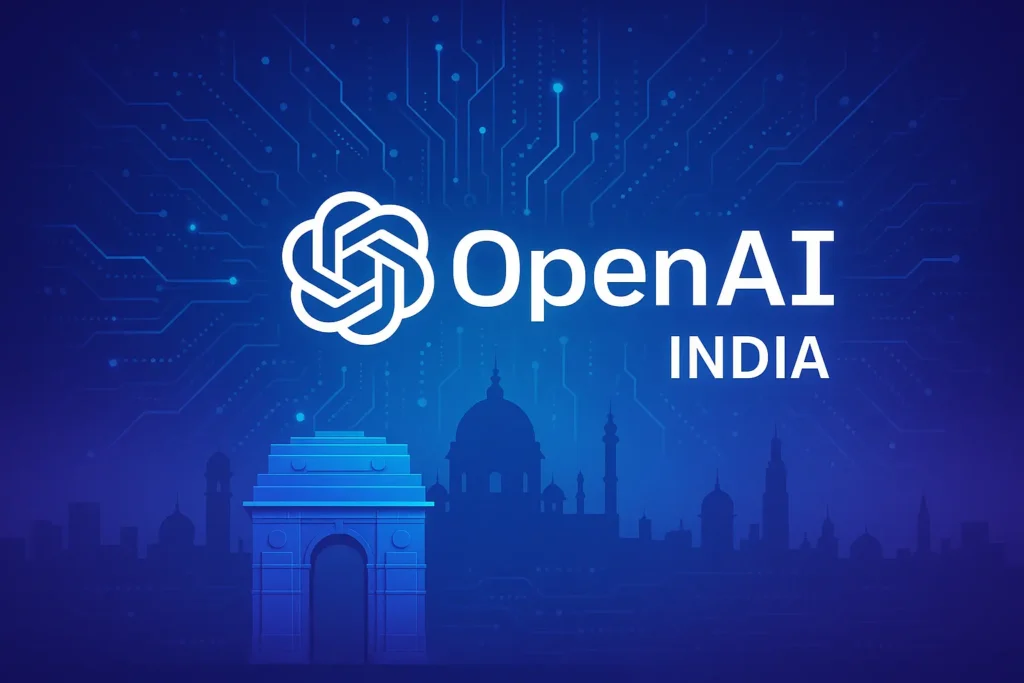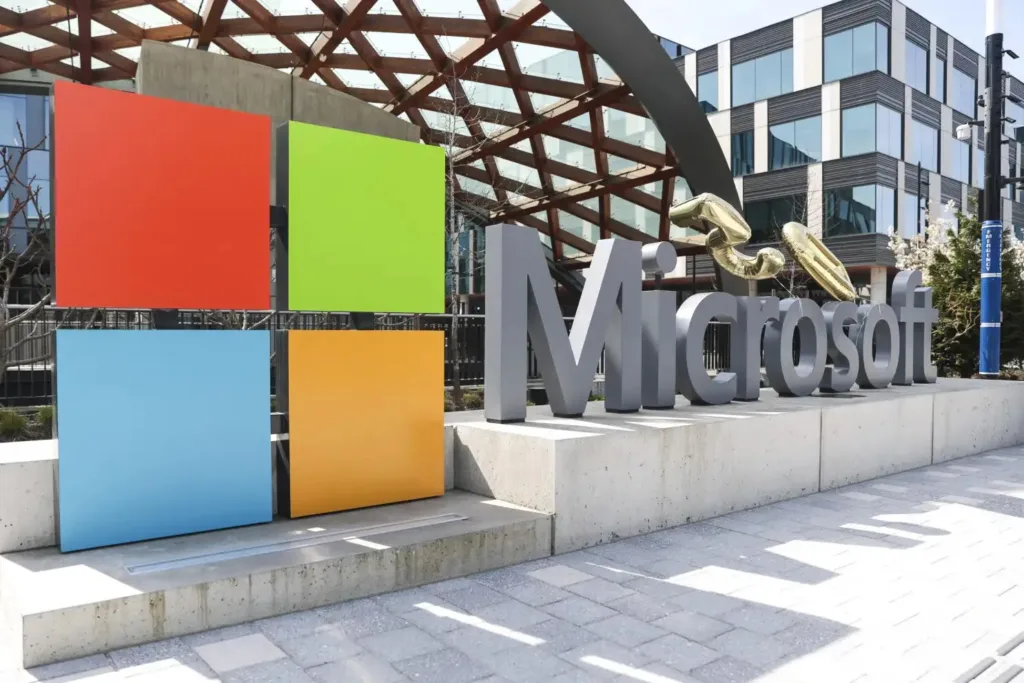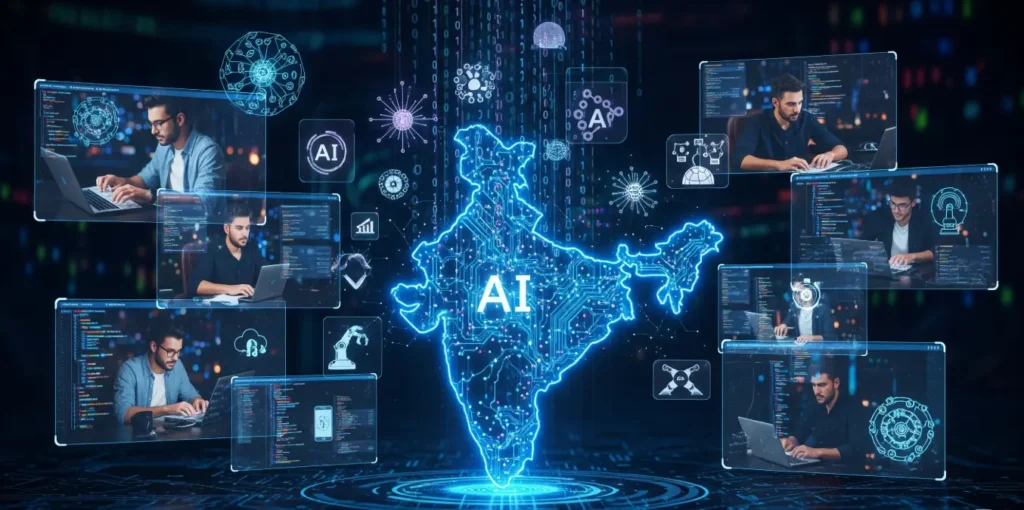When Sam Altman dropped the news that OpenAI was setting up shop in India, it didn’t take long for the tech world to sit up and take notice. The ChatGPT maker is opening its first Indian office right here in New Delhi before 2025 wraps up. It’s a pretty big deal, and honestly, it shows just how much India matters to OpenAI and the entire AI landscape these days.

🔑 Key Highlights
- OpenAI is bringing its first Indian office to New Delhi, with doors opening by 2025.
- They’re already on a hiring spree.
- India has become their second-largest market worldwide, with ChatGPT usage shooting up almost four times in just one year.
- The new office isn’t just for show either; they’re looking to build solid partnerships, provide better local support, and really dig into India’s booming AI scene.
What’s OpenAI Actually Doing?
So here’s what we know: OpenAI has gotten all their legal paperwork sorted in India and confirmed they’ll have a proper physical office in Delhi by next year’s end.
Sam Altman couldn’t contain his excitement either, posting on social media: “We are opening our first office in India later this year, and I’m looking forward to visiting next month.”
They’re not messing around with the hiring either. Right now, they’ve got three big leadership positions up for grabs: Account Director roles for Digital Natives, Large Enterprise, and Strategics.
Reading between the lines, it’s pretty clear they want to work hand-in-hand with everyone from scrappy startups to massive corporations and even government agencies right from day one.
Why India? Why Right Now?
Look, India has basically become the hottest spot for AI tools on the planet. ChatGPT usage here has gone through the roof; we’re talking a fourfold increase in just twelve months. That’s landed India the number two spot on OpenAI’s global user list, right after the United States.
The timing couldn’t be better either. India’s got everything going for it:
- A massive young population that’s always eager to try the latest tech innovations.
- An incredible startup ecosystem, fintech, edtech, healthtech—already experimenting with AI in fascinating ways.
- Government initiatives like the IndiaAI Mission that are genuinely trying to turn the country into a global AI powerhouse.
By opening an office here, OpenAI isn’t just expanding its reach; it’s putting down roots in what’s arguably going to be one of the most important markets for AI adoption worldwide.
What This Could Mean for Jobs and Careers
For Indian professionals, this goes way beyond just symbolic gestures. Sure, OpenAI’s first job postings focus on sales leadership, but that’s obviously just the beginning.
Having a local presence could eventually open doors for:
- AI research partnerships with Indian universities and institutions.
- Engineering and product development opportunities tapping into India’s incredible tech talent pool.
- Startup collaborations that let Indian companies build directly on OpenAI’s cutting-edge models.
Right now, they’re clearly focused on business growth and forming partnerships. But as AI adoption keeps climbing, there’s every reason to believe India could become a major player in OpenAI’s global research and innovation efforts too.
🔎 Explore More
Don’t miss out on more trending stories from the world of tech and business:
How This Changes Things for Indian Users and Businesses
Having an office in Delhi means OpenAI will actually be in the same timezone and neighborhood as Indian users and companies. That’s going to make a real difference:
- Better Support: Indian startups and enterprises won’t have to deal with overseas time zones when they need help or want to explore partnerships.
- More Affordable Options: With ChatGPT Go launching at ₹399 per month, OpenAI is clearly thinking about what works for Indian budgets.
- Local Language Support: Having a team on the ground here might speed up development of tools that work in Hindi and other Indian languages, which could be a game-changer for millions of people.
So while the headlines are all about an office in Delhi, the real story is how this could change the way Indians interact with AI in their daily work, studies, and business operations.
Delhi Over Bengaluru? Here’s Why
Most people probably expected OpenAI to pick Bengaluru—after all, it’s India’s undisputed tech capital. But Delhi made more strategic sense when you think about it.
Being in the capital puts OpenAI right where the action is: close to the central government, key regulators, and the headquarters of major corporations. With AI policies and regulations still being hammered out, having a presence in Delhi gives them a real advantage in those crucial conversations.
Sure, social media had a field day joking about how “Bengaluru lost to Delhi traffic,” but the choice really highlights how important government relations and policy discussions are for a company like OpenAI.
The Bigger AI Picture in India
OpenAI definitely isn’t the only one eyeing India seriously. Companies like Google DeepMind, Anthropic, and Meta AI are all doubling down on their Indian presence too.
It makes perfect sense—India has the talent, the user base, and the government backing that global AI companies simply can’t afford to ignore.
For India, OpenAI’s entry is pretty solid proof that the country isn’t just consuming global tech anymore—it’s becoming a real player in shaping the AI revolution.
What This All Means
OpenAI’s decision to plant their first Indian flag in New Delhi goes well beyond typical corporate expansion—it’s basically an acknowledgment that India has serious influence in the AI world now.
- For businesses, this means easier access to AI tools and genuine opportunities for direct collaboration.
- For everyday users, we might see more affordable pricing and better support for Indian languages.
- And for the global tech industry, it’s a clear signal that India is stepping confidently into its role as an AI leader.
As Sam Altman hinted, the future of AI is definitely coming to India—and this time, it’s setting up a permanent address in New Delhi.
Sources: Times of India, Economic Times,



